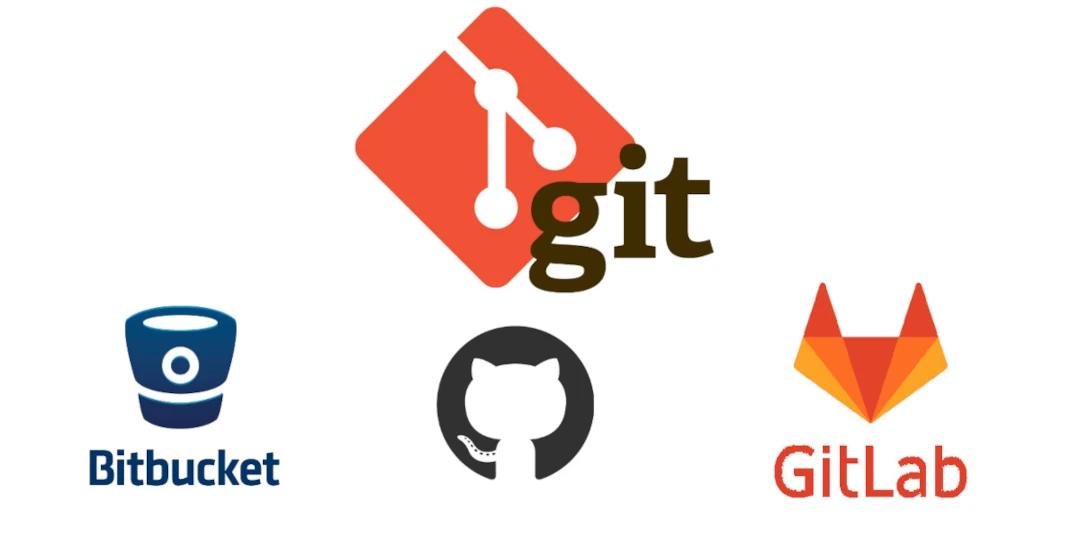Sun Jun 05 2022
What is the difference between Bitbucket GitHub and GitLab?

Finding differences between anything become very easy when you know what it is and if your concept is clear about it. So, let’s check out what is Git and its repositories such as GitHub, GitLab, and Bitbucket?
Git
Git is a version control system and created by Linus Torvalds in 2005 for development of the Linux kernel. It used to track changes in computer files and coordinating work on those files among multiple people and primarily used for software development, but it can be used to keep track of changes in any files. Developers who work with Git, are well known as talented people in software development and works beautifully on a wide range of operating systems and IDEs.
Git specifically works by taking "snapshots" of files. If files remain unchanged in a particular version, it simply links to the previous files; that’s why everything keeps faster and lean.
Repositories
GitHub
Github is both a remote server, a community of developers, and a graphical web interface for managing your Git project beautifully. GitHub provides free plans for open-source projects and paid plans offering unlimited private repositories. Organizations also can choose a paid plan with sophisticated security and administrative features. Every user account and organization on GitHub can have unlimited collaborators on any number of public repositories. It's a valuable website for many pro and newbie developers. Though it's a Git repository hosting service, most of the features have its own. GitHub provides a Web-based graphical interface with access control and the developers use Github to host their project to collaborate with other developers around the world via a public or private repository. It's very helpful when you work with Github either for a solution or for open source codes, Github provides you the other developers ongoing collaborated project to figure out the solution.
GitLab
GitLab is one of the best web platforms for hosting project source codes and it developed on the basis of Git version control system. It's very good product with beautifully designed and it has a very large toolset. It's completely free for unlimited users, unlimited private repositories, and full access to most of the awesome features they provide.
Bitbucket
Bitbucket is used for source code and development projects that use either Mercurial or Git revision control systems, and is a web-based version control repository hosting service owned by Atlassian. It offers free accounts with an unlimited number of private repositories. It is similar to GitHub but can have up to five users in the case of free accounts. It's written in Python using the Django web framework.
Now we can find the differences between them. So, let’s start -
-
Github was one of the first git hosting providers in the market and they’ve managed to hold onto that. That means if you contribute your project with others, it helps to have it on Github because there have chances that people which you want to contribute have an account.
-
Syntax themes; this has been something that has been waiting a long time for others to come out with, but GitLab getting it firstly. Syntax themes included with a dark theme which helps you a lot when checking diffs in the browser, and it's awesome.
-
But most of the people are still using Atlassian products that is Bitbucket. It’s definitely not because of their user interfaces, because it's comfortability with tools.
-
GitLab has a built-in Docker registry for your projects which is an amazingly powerful feature to keep containers off of the public registry at hub.docker.com, but don’t want to pay for a private service. But in the other two have no this feature.
-
But GitLab isn’t as fast as GitHub when it comes to pushing and pulling repos.
-
GitLab saves you from having to use an external CI service by having their own CI built in.
-
For Bitbucket private repositories are free for a team with 5 members and fewer. If the team is larger, it will be necessary to pay for each additional team member. Where the other hand Github and GitLab have unlimited private repositories.
-
GitHub is famous for its open source software but is not an open source itself. And BitBucket is also not an open source code host, but GitLab has an open source code version.
-
BitBucket stands out of other two competitors because it is the only of source code hosting sites that support different repositories.
-
In Github, the file size can’t be more than 100Mb while the repository can host 1Gb of information.
-
GitHub offers free public repositories; Bitbucket offers free private repositories; GitLab offers a Community Edition is entirely free.
-
Both GitHub and BitBucket provide the import of repositories on the basis of several different VCS. But GitLab only supports Git platform.
-
So, according to supports, GitLab supports only Git as we mentioned before, where GitHub supports - Git, SVN, HG, TFS import. And BitBucket supports - Git, CodePlex, Google Code, HG, SourceForge, SVN import.
Lastly, said that the perfect one is that depends on you. If you’re comfortable getting to know a new way of doing things, then you can go with GitLab. If you’re already comfortable with then go ahead and stick with what you know, but you know that there are multiple alternatives available. If you find anything else that is different from these three, then share it in the comment section. Thank you!